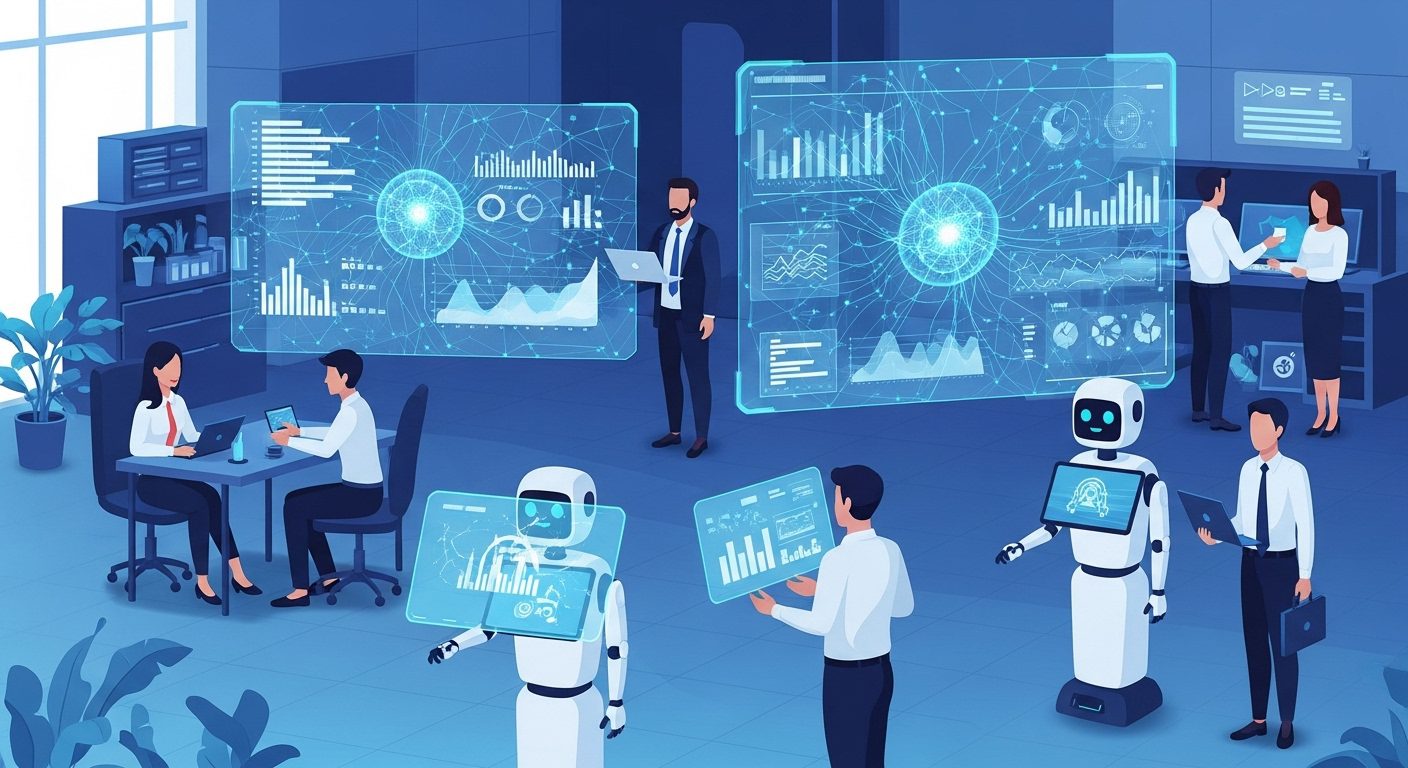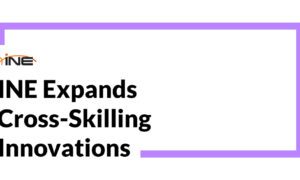Discover how AI is transforming business operations with automation, smarter decisions, and improved efficiency across industries.
Artificial intelligence is no longer a futuristic concept—it’s a practical tool reshaping how companies operate today. From automating routine tasks to enabling smarter decision-making, AI is transforming business operations at every level. Whether you’re a business owner, tech enthusiast, or investor, understanding how AI works and where it adds value is essential for staying ahead. To understand the building blocks behind this shift, explore this guide to Artificial intelligence.
In this article, we’ll break down how AI in business is changing processes, improving productivity, and helping companies unlock new opportunities.
AI Business Transformation: Why It Matters Today
AI has moved from experimentation to mainstream adoption. Businesses now use AI-powered tools to reduce costs, increase accuracy, and streamline operations. This shift is happening for three main reasons:
-
Faster, more affordable computing power
-
Access to large sets of business data
-
AI automation tools that can be deployed quickly
These factors drive rapid AI business transformation, enabling companies to innovate faster.
How Artificial Intelligence Is Transforming Business Operations
AI impacts nearly every business function. Here are the most important areas where artificial intelligence is creating real change.
AI Automation for Businesses
AI-powered automation helps companies eliminate repetitive work and focus on strategic tasks. Common examples include:
-
Automated data entry
-
Invoice processing
-
Lead qualification
-
Email sorting and routing
-
Customer support chatbots
This level of AI automation for businesses reduces human error, lowers operational costs, and speeds up workflows. AI-powered automation software like Omnisend offers powerful SMS and email marketing solutions. Check out this Omnisend coupon code by Woblogger to claim a 10% discount on any Omnisend plan.
Smarter Decision-Making Through Data Insights
Businesses generate massive amounts of data but often struggle to interpret it. AI solves this through:
-
Predictive analytics
-
Customer behavior modeling
-
Real-time reporting
-
Automated forecasting
With AI-supported insights, leaders make decisions based on real data rather than assumptions.
Enhanced Customer Experience
AI improves customer engagement and personalization in powerful ways. Companies now use artificial intelligence to:
-
Provide instant support via intelligent chatbots
-
Deliver personalized product recommendations
-
Anticipate customer needs
-
Segment audiences more effectively
Customer satisfaction increases—while support costs decrease.
AI in Supply Chain and Logistics
Supply chains are complex and time-sensitive. AI helps companies optimize operations through:
-
Predictive demand planning
-
Automated inventory management
-
Real-time shipment tracking
-
Route optimization
These solutions reduce delays, prevent stockouts, and lower shipping costs.
AI in Human Resources and Talent Management
HR teams now use artificial intelligence to streamline hiring and retention processes, such as:
-
Resume screening
-
Candidate ranking
-
Employee performance analysis
-
Workplace engagement predictions
AI frees HR teams to focus on strategic planning and employee development.
AI in Business: Industry-Wide Use Cases
AI is transforming business operations in nearly every sector. Here are standout examples:
Healthcare
-
AI-assisted diagnostics
-
Predictive analytics for patient outcomes
-
Automated appointment management
Finance
-
Algorithmic trading
-
Risk assessment
Retail
-
Dynamic pricing
-
Virtual shopping assistants
-
Personalized marketing
Manufacturing
-
Predictive maintenance
-
Quality inspection
-
Automated assembly lines
Real Estate
-
Property value forecasting
-
Automated listing descriptions
-
Virtual assistants for buyers
Benefits of Adopting Artificial Intelligence in Business
Companies adopting AI enjoy several advantages:
-
Lower operational costs
-
Higher accuracy and consistency
-
Faster execution of complex tasks
-
Improved customer satisfaction
-
Increased revenue through data-driven insights
AI also boosts competitiveness by enabling companies to innovate before their competitors do.
How to Prepare Your Business for AI Integration
If you’re considering adopting AI, start with these steps:
-
Identify automation opportunities—look for repetitive tasks that slow your team down.
-
Assess your data quality—AI tools rely on accurate, well-organized data.
-
Choose the right tools—select platforms that integrate smoothly with existing systems.
-
Train your team—employees should understand how to work with AI.
-
Start small and scale gradually—test one process at a time before rolling it out company-wide.
This approach ensures smoother adoption and measurable results.
Conclusion
AI is transforming business operations faster than ever before. From automation to smarter decision-making, artificial intelligence helps companies operate more efficiently, reduce costs, and improve customer experiences. Whether you’re an entrepreneur or an investor, embracing AI is now a strategic necessity for future growth.
FAQs
1. How is AI transforming business operations?
AI streamlines workflows, automates repetitive tasks, improves decision-making, and enhances customer experiences across industries.
2. Which industries benefit the most from AI?
Healthcare, finance, retail, manufacturing, and real estate are major adopters, but AI is now used in almost every sector.
3. Is AI automation expensive for small businesses?
Many modern AI tools are affordable and scalable, making them accessible for startups and small businesses.
4. Does AI replace human workers?
AI replaces repetitive tasks—not jobs. It allows employees to focus on strategic, creative, and analytical work.
5. How can a business begin using AI?
Start by identifying repetitive tasks, choosing simple AI tools, improving data quality, and training your team.
Learn how smart SEO strategies help startups and small businesses build long-term online visibility, organic traffic, and sustainable growth.



































